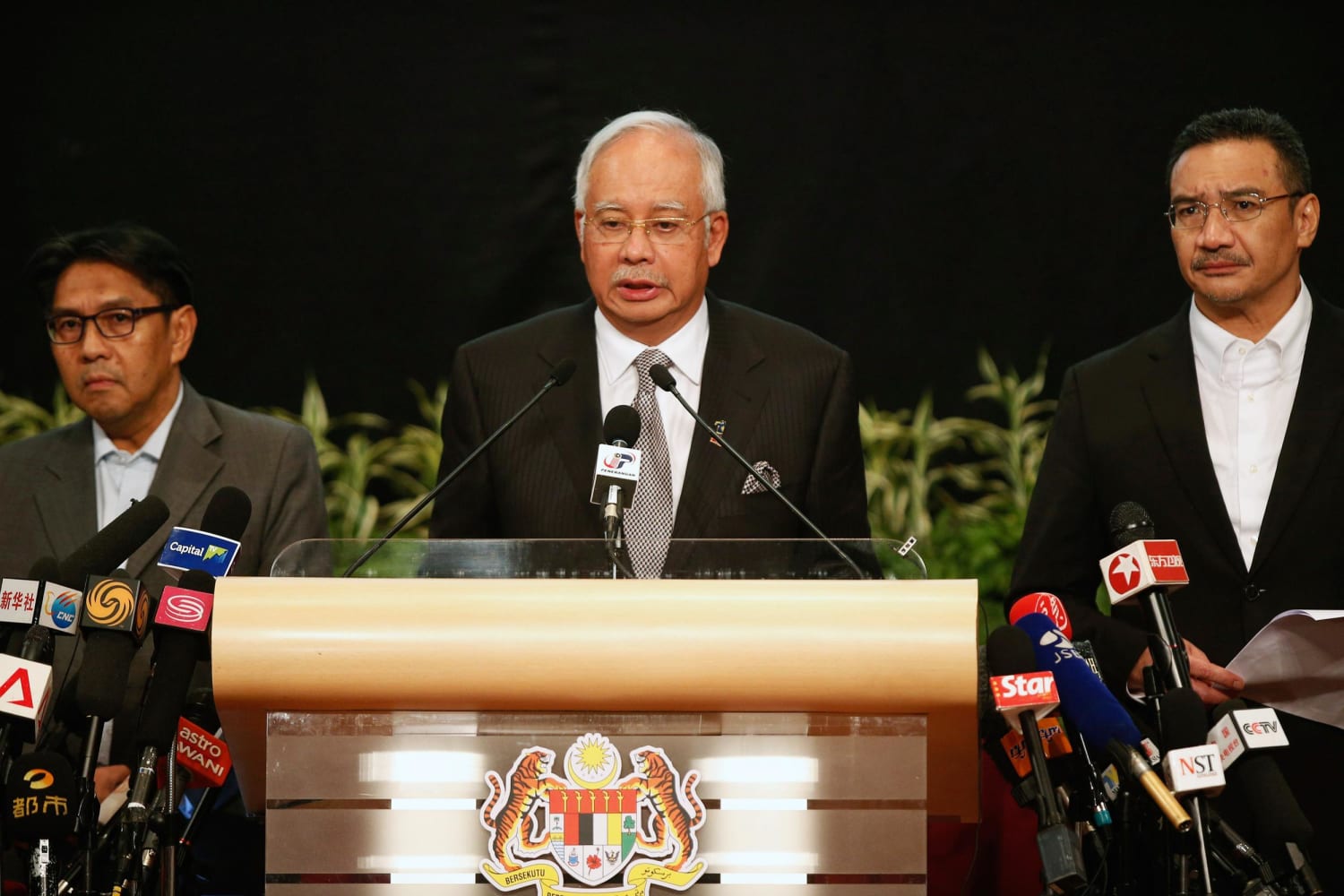
Najib kecut teloqberdepan media asing, beri imej buruk pada negara...
Tindakan Perdana Menteri, Datuk Seri Najib Tun Razak yang mengelak daripada menjawab soalan media antarabangsa disifatkan sebagai pengecut sekaligus memberi imej buruk kepada Malaysia.
Pengarah Komunikasi KEADILAN, Fahmi Fadzil berkata, Najib seharusnya lebih bersikap terbuka dan profesional dalam mendepani media antarabangsa berhubung kes kehilangan pesawat MH370.

“Bila mengelak, gambaran buruk kepada Malaysia bahawa kita mempunyai Perdana Menteri yang takut dan pengecut.
“Jangan hanya sekadar membaca teks yang disediakan. Seorang perdana menteri perlu lebih bersedia untuk menjawab apa sahaja soalan yang dikemukakan oleh media tempatan mahupun antarabangsa.
“Macam mana sekalipun kalau tidak tahu jawapan yang tepat untuk menjawab soalan yang dikemukakan, terus terang, cakap ‘saya tak pasti dan akan memberi kenyataan dengan lebih lanjut nanti’. Itu lebih baik daripada terus mengelak daripada mereka,” katanya ketika dihubungi.
Najib dalam sidang media ketika lawatannya di Perth Australia dilapor hanya membaca kenyataan akhbar dan terus meninggalkan majlis selepas pihak media mula bertanya soalan.
Beliau juga tidak menjawab soalan daripada media sejak sidang media pertamanya berkenaan kehilangan pesawat MH370 pada 8 Mac lalu.
Fahmi berkata, ketakutan Najib terhadap media asing disebabkan mereka lebih terbuka berbanding media arus perdana yang dikawal kerajaan di negara ini.
“Sepatutnya PM itu sendiri kena berani berdepan dengan media antarabangsa. Suara beliau itu perlu didengari rakyat, dan apa yang keluar daripada mulut perdana menteri itu ditunggu rakyat,
“Tapi bila Najib mengelak untuk menjawab soalan daripada media, ia jelas menunjukkan Najib takut dengan mereka.
“Mana tidaknya, selama ini hanya dikawal oleh media pro kerajaan sahaja, tapi kali ini berdepan dengan media yang lebih terbuka,” ujarnya.- kd

Tough questions leave 'em squirming...
In an investigation repeatedly said to be above race, politics and party lines, the Malaysian government has drawn a curious distinction in disseminating information - that between foreign and local media.
The division is unsurprising considering the authoritarian government’s poor record of transparency, and the level of control it exerts over the local media.
The long-ruling Barisan Nasional coalition is unaccustomed to fronting up to tough questions, preferring instead to simply dismiss, or jail, its critics.
But a foreign press corps unafraid of confrontation with authority descended on Kuala Lumpur on March 8, putting the government in an unprecedented position, and under a spotlight it is unfamiliar with.
Local journalists have been astonished at the forthright manner foreign reporters ask questions of the government, and do so without fear of reprisals.
He was surprised at what he saw as a basic request, but happily complied, saying it highlighted how unaccustomed local reporters were to asking questions, and how infrequently they expected to get answers.
Yet the nightly media briefings on the missing plane are one of the most stark displays of the division imposed between local and foreign media.
After acting Transport Minister Hishammuddin Hussein’s prepared statement, the floor is opened for local reporters to ask questions first, followed by those from foreign media outlets.
At one briefing, a foreign journalist said she had done a tally - local reporters were allowed to ask 12 questions, while foreign reporters were allowed just three before the press conference was abruptly ended by officials.
There have also been press events restricted to local mainstream media, and two days ago, the head of the Department of Civil Aviation stopped his opening speech at an international aviation conference to ask reporters to leave.
Yesterday, the story was removed from The Star’s website, and did not appear in its print edition - illustrating the heavy hand local media are treated with by a government that refuses to tolerate dissent.
Confusion over ‘last words’
In the same vein, opposition politicians have been criticised for comments that supposedly left the government vulnerable to attacks from the foreign press.
But as the flight's transcript emerged and contradicted an earlier report, the Malaysian government’s credibility crisis worsened, and criticism from foreign media continued to flow.
Hishammuddin said this week the country's attorney-general had been instructed to compile evidence and advice on possible legal action against media outlets that had published false reports.
Every media outlet that reported “all right, good night” as the last words communicated from the MH370 cockpit presumably falls into this category - because each one was given the same misinformation by the Malaysian government.
But of the nearly 600 media personnel registered as covering MH370 with Malaysia’s Information Department, there will be no prizes awarded for guessing which outlets will be the targets of legal action.- mk


cheers.

No comments:
Post a Comment